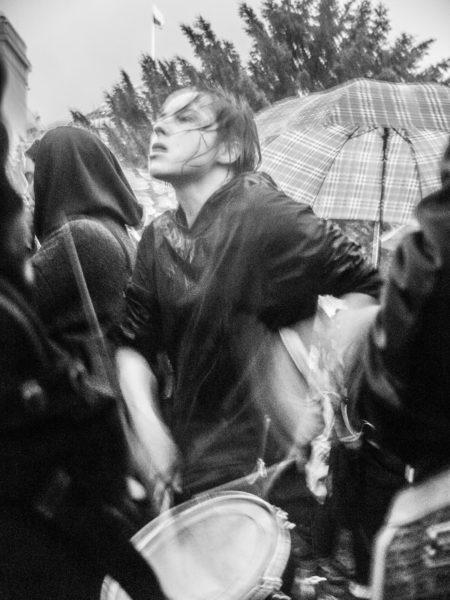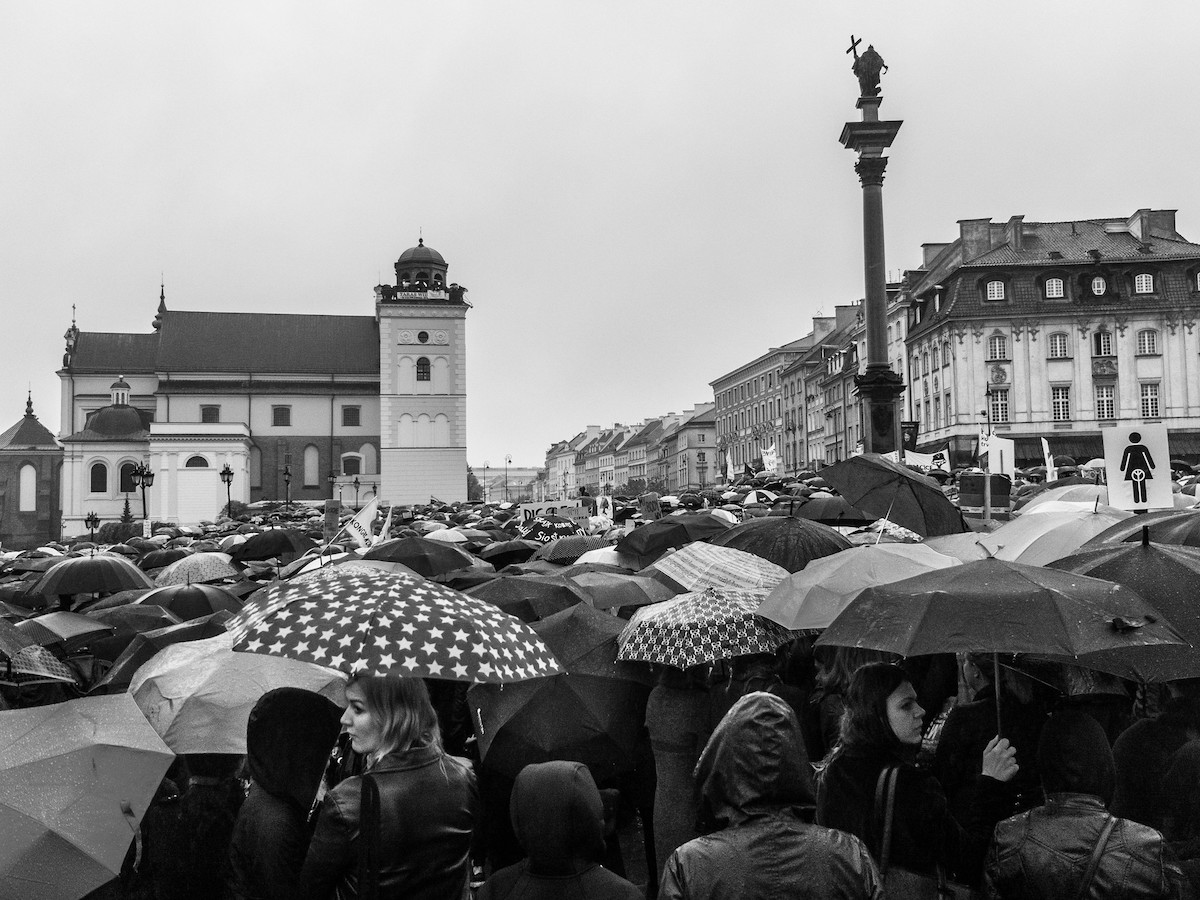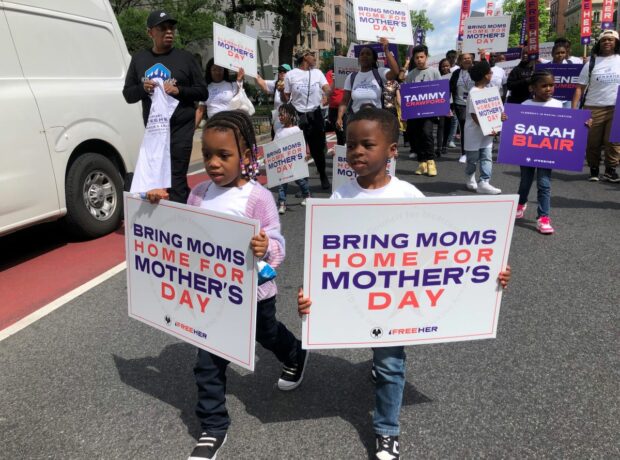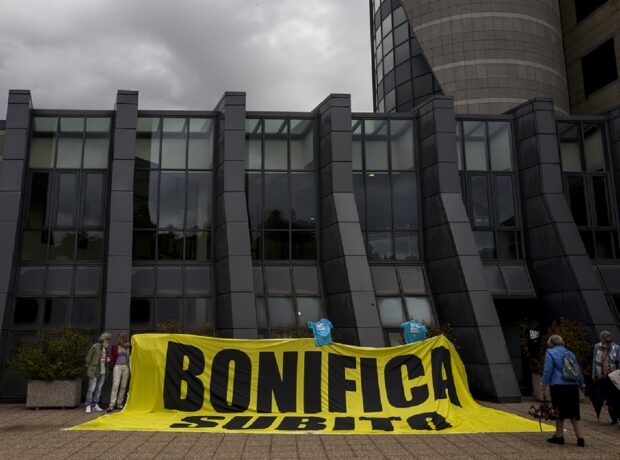A large crowd dressed in black – what does that image make you feel? What memories come to mind? Perhaps you think of sadness, mourning, funerals, things coming to an end… But what about solidarity – a solidarity found through anonymity, perhaps. Or rebellion? Or power?
The Black Protests in Poland, starting in 2016, appear to have shown that everything is not black and white when it comes to the meaning of colours and symbols. These protests addressed a law reform that would place a total ban on abortions. If this law had been passed, there may have been a chance of women facing prison sentences after involuntary miscarriages. What’s more, pre-natal diagnostics would essentially have been rendered irrelevant.
After 143 rallies across Poland, and 100,000 people marching on the streets of many major Polish cities on 3 October 2016, the Polish government did not pass this new legislation. While the protests have not caused anti-abortion laws in Poland to be reversed (in fact early in 2021 a controversial near-total abortion ban came into force), they have sparked national debate around women’s reproductive rights and did deter the government from introducing an all-encompassing ban.
In this podcast, by law student Ala Lysik, the protesters are described by one interviewee as being like streams of water turning into an enormous river on the main streets. A river of people dressed in black. Many of whom would have been holding umbrellas, for practical purposes. The umbrellas, however, also took on a symbolic role for protestors. They wouldn’t fold their umbrellas away, one protestor remembers, keeping them open whatever the weather. The umbrellas came to represent sacrifice, perseverance and struggle.

A woman playing a drum at the Black Protests in Poland photography by Grzegorz Żukowski
The Black Protests are by no means at an end. When courts passed the plans for a near-total ban on abortions in October of last year, huge protests ensued. “Free Choice, Not Terror” was the motto displayed on placards, and activists spoke out about their desire to make decisions about their own bodies.
Lockdown has not prevented the Black Protests from keeping the debate around women’s reproductive rights alive. Polish and Argentinian activists collaborated in organising national women’s strikes on 8 March 2020. Photos of people dressed in black flooded social media, with umbrellas displayed in windows and balconies.
This podcast, produced for the undergraduate Law and Disorder module at Warwick Law School, includes interviews with Dr Elżbieta Korolczuk, a researcher at Gothenburg University in Sweden and a lecturer in Gender Studies at Warsaw University, and Bartosz Ślosarski, a researcher of politics, social movements and protest at Warsaw University. The episode explores how, in the eyes of some of those involved, these protests appear to have added another layer to the meaning of black, by redefining it as a colour associated with connectivity, creativity, and with a carnivalesque situation in which anger was turned into humour and power.
Find out more about this story here.
Read more:
- Abortion Without Borders: Feminists across Europe unite against Poland’s restrictive laws
- 11 feminist podcasts that celebrate women’s voices
- Freedom of assembly in Bosnia and Herzegovina: An actual right or still just a demand?
All photography by Grzegorz Żukowski.



